Personal information exposed from online shopping, sharing on social networks
Colonel, Dr. Nguyen Hong Quan, Head of the Department of Data Security and Personal Data Protection, National Cyber Security Association (NCA) informed: "The risk of data leakage of Vietnamese users is currently very high, with nearly 74% through online shopping and more than 62% through sharing on social networks.
Not only individuals, businesses and organizations also face the risk of ransomware cyber attacks to extort money, use artificial intelligence (AI) technology in attacks, or be scammed through automatic chatbots. Sharing about this issue, Mr. Ngo Minh Hieu, Director of the Anti-Fraud Organization said: "The subjects now only need to enter the scam scenario, the chatbot will automatically chat with the victim in real time, increasing the speed of scamming 20 times faster than humans".

In the second quarter of 2025, AI attacks increased by 62%, causing global losses of up to 18 billion USD. Hackers use AI to fake faces, voices, and even customize AI tools on the "black market" to create viruses and malware, surpassing conventional anti-virus software.
Dr. Dao Trung Son, Director of the Cyber Security Program, Phenikaa University, assessed that online criminals now combine the real and virtual worlds , using personalized scenarios to manipulate victims' psychology. Awareness of psychological manipulation tricks is still seriously lacking, despite propaganda on fraud prevention, many people are still trapped every day.
Colonel Nguyen Hong Quan said that the activities of selling personal data are currently taking place openly, from call history to personal location, at a cost of about 500 USD per month. These actions seriously violate personal life and demonstrate the urgency in perfecting the legal framework for data protection.
In the world, Europe is considered a model with a strict legal framework, while the US protects data through laws on health, education and children. In Southeast Asia, most countries have regulations on personal data protection. In Vietnam, the Decree on Personal Data Protection will take effect from April 17, 2023, and the Law on Personal Data Protection will officially take effect from January 1, 2026.
Using AI to deal with cyber attacks
Experts warn that AI is not only an attack tool, but also used for defense. Deepfake technology now takes only about 30 seconds to impersonate a human voice, helping cybercriminals carry out scams and steal personal information without requiring high hacker skills.
Mr. Ngo Minh Hieu shared: “In the underground market, for just 200-300 USD per month, anyone can own an AI tool that automatically compiles scam scripts, screens victims, and even creates viruses containing malicious code like ransomware.”
A particularly important front is digital identification (eKYC). Vietnam currently has about 27 million accounts with electronic identification, becoming an attractive "bait" for hackers. Mr. Phan Trong Quan, Head of VNPT Information Security Assessment Department, explained: "Criminals now do not need crude tricks such as pasting fake ID numbers, but use deepfake to copy the identification part, interfering with video data during the authentication process."
To counter this, VNPT has developed an AI system that analyzes behavioral biometrics, assessing small details that are difficult for humans to notice, such as how the phone is held, the vibration or the heat created by the fingers. This system learns user habits, detects unusual behavior and prevents fraudulent transactions before damage occurs.
However, the most powerful technology becomes useless if people are not aware of the risks. Mr. Hoang Manh Duc, FPT University, affirmed that the "high wall, deep moat" model is outdated, replaced by the "Zero Trust" philosophy, strictly verifying all connections and devices, both inside and outside the system.
Dr. Doan Trung Son pointed out that the core problem in Vietnam today is the lack of “cyber security culture”. This is not only a technological issue but also a human awareness issue that needs to be implemented from leaders to all employees.
The battle to protect cyberspace in Vietnam has become a new front based on three pillars: Technology, law and people. In which, the human factor is considered the most important link, because any defense system can be disabled if users are not aware of the risks.
Source: https://baotintuc.vn/xa-hoi/tri-tue-nhan-tao-bien-du-lieu-ca-nhan-ro-ri-thanh-mieng-moi-cho-toi-pham-mang-20251116193913218.htm



![[Photo] General Secretary To Lam and National Assembly Chairman Tran Thanh Man attend the 80th Anniversary of the Traditional Day of the Vietnamese Inspection Sector](https://vphoto.vietnam.vn/thumb/1200x675/vietnam/resource/IMAGE/2025/11/17/1763356362984_a2-bnd-7940-3561-jpg.webp)




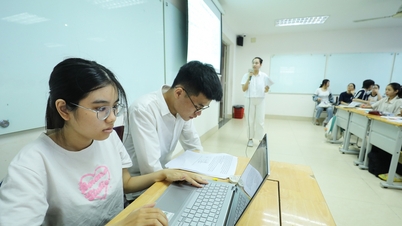

























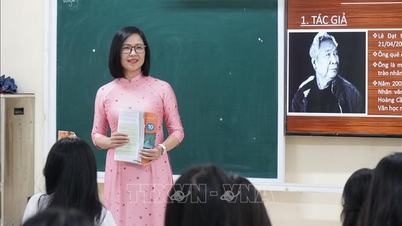


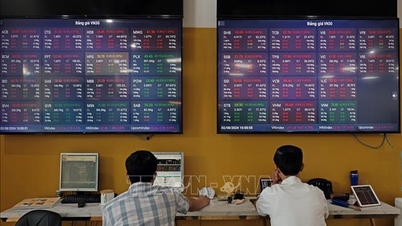








































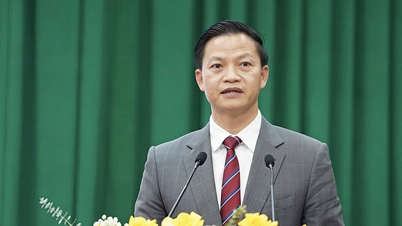









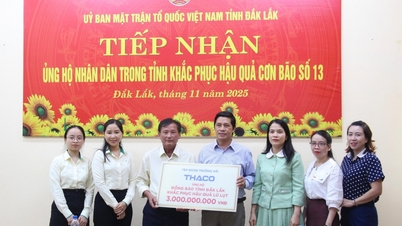


















Comment (0)